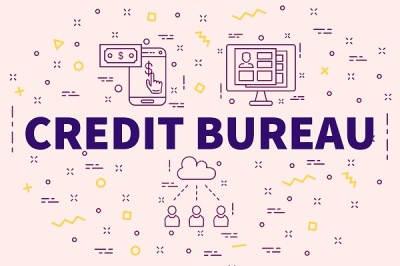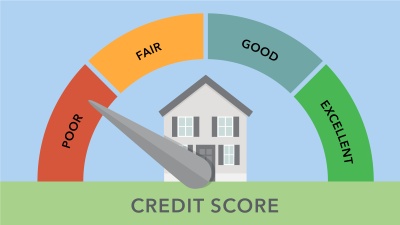Part 1: Understanding the Credit Landscape I Credit Reports & Credit Scores
.png&q=95&w=400)
Learn about the intricacies and differences between credit scores and your credit report in Erin's three-part blog series on "Understanding the Credit Landscape". Erin also includes some tools and tactics for managing each!
This week, Erin the Expert explains the differences between a credit report and a credit score. Let's take a look!
Understanding the Difference between Credit Reports & Credit Scores
Many people do not understand that there’s a difference between your credit report and your credit score. A credit report is a repository of an individual’s credit profile, maintained by the three credit bureaus: Transunion, Experian and Equifax.
The credit report contains a listing of the following:
-
Listing of all businesses extending loans and credit
-
Initial loan amounts (or credit limits)
-
Current balances
-
Payment history, i.e. payment amount and if the account was paid on time or late
-
Hard Inquiries (more on this later)
-
Previous addresses
-
Employment history
-
Credit blemishes (aka as derogatories) such as late payments, collections, bankruptcy and foreclosure
Let's get back to credit scores. Credit scores are formulas that use information on your credit reports maintained by the 3 credit bureaus that we mentioned before. A score is rendered for each that identifies the quality of your credit profile for particular purposes.
There are many scoring models, but the two main methods are FICO and Vantage. FICO is the scoring model used by the mortgage industry, specifically Revision 9 which was introduced in 2017. FICO9 includes trended data, which is a historical analysis of credit payment “behavior”. Vantage, on the other hand, renders different scores than FICO. This model weighs different aspects of your credit report.
Although services like Credit Karma give you your Vantage score, these scores are not valid for mortgage qualification. The best way to be proactive and ensure the highest credit score possible is to monitor and manage your credit reports as there can be inaccurate information -It’s best to clear up any errors quickly.
How can inaccurate information end up on your credit report?
Some typical examples include:
-
Common and family names (example: John Smith and John Smith Jr.)
-
Collections you’re unaware of such as: medical and fraudulently opened accounts
The only way for you as a consumer to get an accurate report directly from the three bureaus at no cost is through FreeCreditReport.com. This is the only site approved by the federal government and it allows you to obtain your reports on a yearly basis.
Stay tuned for next week's blog, Part 2: Misunderstandings & Realities of Credit Scoring.
How Much Can You Save On Your Mortgage by Improving Your Credit Score?

Did you know that a good credit score can save you hundreds of dollars a month on mortgage payments – and possibly tens of thousands over the course of your loan?
When a borrower has a high credit score, this gives lenders confidence in their ability to repay the loan. In turn, the higher it is, the lower the interest rate they’ll be willing to give you.
What is a Credit Score?
A credit score is a 3-digit number generated by a mathematical algorithm using information in your credit report and is designed to predict risk. A consumer has 3 FICO scores, one for each credit report: Equifax, Experian and TransUnion.
FICO scores range from 300 to 850, where a higher number indicates lower risk. Here’s the breakdown:
- 750+: Excellent
- 700-749: “Good”
- 650-749: “Fair”
According to the Federal Reserve, the median credit score of home buyers qualifying for a mortgage in the first quarter of 2019 was 759 and 75% boasted a score over 700.
Home buyers do not need a score above 700 to buy a house. However, a higher credit score means you’re given a better mortgage rate and loan options.
Keep in mind, the score you may pull from myFICO, the credit bureaus, Credit Karma, or whichever third-party was an educational credit score. These scores are provided just to give you a perspective on your credit standing. They’re not the scores that lenders actually use to approve your application. Speak with your Greenway Officer for more information.
What Goes into a Credit Score?
The data from your credit report goes into 5 categories that make up your FICO score which weighs some factors more heavily, such as payment history and debt owed.
- Payment history: (35%) -- Your account payment information, including any delinquencies and public records.
- Amounts owed: (30%) -- How much you owe on your accounts. The amount of available credit you're using on revolving accounts is heavily weighted.
- Length of credit history: (15%) -- How long ago you opened accounts and time since account activity.
- Types of credit used: (10%) -- The mix of accounts you have, such as revolving and installment.
- New credit: (10%) -- Your pursuit of new credit, including credit inquiries and number of recently opened accounts.
How much will increasing your score save you?
A small improvement in your credit score (from 680-700) could save you thousands. For example, a top tier credit score versus a bottom tier credit score on a medium-priced home for a 30-year fixed could mean a savings in interest paid of $100,000. Keep in mind, there are other factors that play a role in the mortgage approval process. Some include: cost of the home, size of your down payment and your income.
How Can you Improve your Score?
- Make payments on time and in full each month.
- Make sure you are not using up too much of your credit lines at any one time.
- Keeping your oldest credit accounts open can give you a boost. Make sure to limit how often you apply for new lines of credit. The number of credit inquiries can affect your score.
Ready to Take the Next Step?
Contact a Greenway Loan Officer with any questions you may have, to get pre-approved or to see what type of loan you could qualify for.

-
Not all credit scores are "FICO" scores. (make sure the credit scores you are comparing are actual FICO Scores)
-
FICO scores should be accessed at the same time. (a “week-old” score may already be “dated”).
-
All of your credit information may not be reported to all three credit bureaus. The information on your credit report is supplied by lenders, collection agencies and court records.
-
You may have applied for credit under different names (for example, Robert Jones versus Bob Jones) or a maiden name, which may cause fragmented or incomplete files at the credit reporting agencies. While, in most cases, the credit bureaus combine all files accurately under the same person, there are many instances where incomplete files or inaccurate data (social security numbers, addresses, etc.) cause one person's credit information to appear on someone else's credit report.
-
Lenders report credit information to the credit bureaus at different times, often resulting in one agency having more up-to-date information than another.
-
The credit bureaus may record, display or store the same information in different ways.
If you’re thinking about buying a home. Get to know your credit score better and how to improve it! Learn more here. Give Greenway Mortgage a call to discuss your credit score in detail. There are many different ways we can help. 908.489.4658.

 This was a guest post written by Linda Boscia who is a Business Development Manager for Better Qualified. Better Qualified founded in 2006, is a National Company helping consumers improve, restore and build their credit. Linda has worked with Better Qualified for over 8 years to educate Realtors on the Dos and Donts of Credit. She is dedicated to providing education, self help and support to clients with credit issues.
This was a guest post written by Linda Boscia who is a Business Development Manager for Better Qualified. Better Qualified founded in 2006, is a National Company helping consumers improve, restore and build their credit. Linda has worked with Better Qualified for over 8 years to educate Realtors on the Dos and Donts of Credit. She is dedicated to providing education, self help and support to clients with credit issues.Everything You Need to Know about Credit Score and Mortgage Qualification

A credit score is a number that lenders use, along with other information, to determine if someone will qualify for a loan. An algorithm uses data in your credit report to calculate your credit score. Your credit report shows how much you owe, the length of your credit history, your payment history, new credit inquiries, and what kinds of credit you hold, such as mortgages, auto loans, credit cards and lines of credit.
Each of these factors carries a certain weight when calculating your credit score. Once the numbers are crunched, you end up with a credit score between 300 and 850. The higher the number, the lower the risk, and the more likely you are to qualify for a loan and a lower interest rate.
Why Is My Credit Score So Important?
Mortgage lenders and other lenders will pull your credit score when you apply for a loan. We use your credit score to predict risk. In other words, your credit score will help tell us how likely you are to continue to make your mortgage payment on time.
There are no universal standards for what qualifies as a good or bad credit score, or a minimum score for qualification. Lenders such as Greenway offer a number of loan programs to cover as many types of borrowers and scenarios as possible. These loan programs are issued by a variety of investors, who set guidelines that are used when loan applications are reviewed.
How Can I Find Out My Credit Score?
Consumers can request one free credit report per year from each of the three major credit reporting bureaus – Equifax, Experian and TransUnion. The bureaus will issue a credit score for a free. However, there is not one universal credit score. Different lenders use different credit scoring models for different borrowing purposes even though the information within the report is the same. That means you could get different credit scores from a credit card company and a mortgage lender.
These days, many monthly credit card statements include your current credit score. There are other services that will provide you with your credit score for free, but you’ll probably be added to an email list and get bombarded with promotional offers. You could also get stuck in a free trial membership that automatically turns into a paid membership unless you manually cancel. You’ve probably seen ads for these companies on TV and online.
Keep in mind that it can be difficult to distinguish legitimate companies from scams and identity thieves. A legitimate company will never require you to provide credit card information. If you want to see your credit score, your financial institution is the best place to start.
Want to pay your credit card debt sooner? Use this FREE calculator to plan >>
Should I Review My Credit Report?
It’s a good idea to take advantage of your ability to receive free credit reports. This allows you to go over your credit data in detail and look for errors, which can be caused by everything from security breaches to data entry mistakes. Any inaccuracies in your credit report could affect your credit score and your ability to qualify for a loan.
If you’re planning to make a major purchase like a home and you're concerned about keeping your credit report clean, there are a number of credit monitoring services that charge a monthly fee to look for suspicious activity on your credit report. You’ll then be notified immediately if such activity occurs.
You should also monitor your bank and credit card accounts on a regular basis and set up alerts so you’re automatically called, texted or emailed if a purchase exceeds a specific amount or occurs in an unusual location.
Take the Next Step
Credit scores are a critical but sometimes confusing part of the mortgage qualification process. If you have questions, please contact us and we’ll be happy to help.
.jpg)


.png)



.jpg)